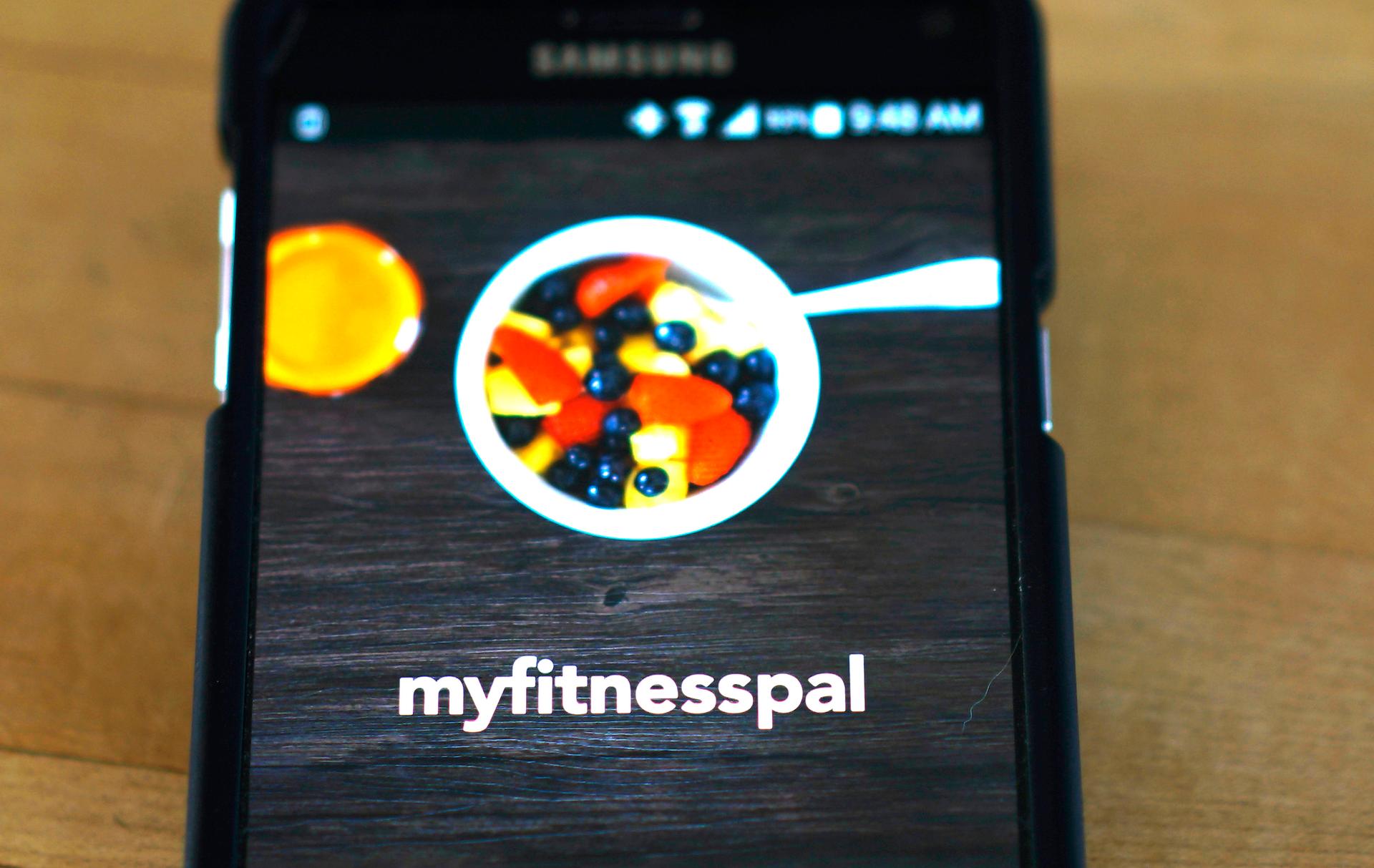New apps hope to peer pressure you into eating healthy — for a healthy fee
The MyFitnessPal app is seen on a smartphone in Golden, Colorado. Athletic clothing company Under Armour said it would pay $475 million for MyFitnessPal, a free app for tracking food habits and caloric intake.
Food-coaching apps do pretty much what you’d expect from the name: They connect you to professionals or peers who give you healthy eating advice based on photos and descriptions of your meals that you share. Think of it as Foodstagramming on steroids.
“The big idea behind this is that it keeps the user a little more accountable if you have to answer to another human being or dietitian within the app,” says Lauren Goode, managing editor of reviews for the technology news site Re/Code.
It’s an approach that has its roots in digital food logging — using an app to log everything you eat — except now it has the added element of good old-fashioned peer pressure.
Different apps take different approaches. One popular app, Noom Coach, allows you to connect to group of fellow “like minded members” led by a more experienced group leader. Another app called Rise sets you up with your own nutrition coach, who is a dietician or nutritionist.
Neither app is cheap: Rise runs between $10 and $15 a week, depending on the coach you choose. Noom, which is more directly tailored to weight loss, costs $10 a month.
Goode tested both apps, along with several other similar competitors. She found the personal input helped her get on track at first, particularly with the personal coach in the Rise model. But she thinks the relatively high price could be a sticking point, considering that there are many free apps people can use to track their own progress.
“To pay that kind of fee for access to a person within a mobile app, it’s not something that I found to be necessarily sustainable,” she says.
But personal coaching apps appear to be catching on, and similar models are being used by personal trainers and even doctors. Goode also tested an app called AmWell, that charges you $49 for a 10-minute “video visit” with a doctor for advice for non-chronic conditions, like a cold.
“A lot of apps now are starting to offer this combination," she says. "It’s not just about what can the app tell me, it’s how can it connect me with real human beings."
Yet it can be harder to establish a personal relationship with a trainer when you aren’t meeting them in person, Goode notes. And apps that venture into the realm of medical diagnosis can be even more problematic. On Feb. 28, the Food and Drug Administration fined the makers of two apps that promised to help users determine if moles on their skin were melanoma; the agency said the apps were making unsubstantiated claims.
But coaching apps seem to work for some people, and the reason why has everything to do with a basic element of human nature: We’re social beings, both online and off. Goode cited a 2013 study by the Baylor College of Medicine that showed patients who participated in a community-based weight loss program with group meetings — Weight Watchers— were more successful at losing weight than those who tried to lose it on their own.
“In general, people who are … putting themselves in that social scenario tend to be a little more successful with these goals,” she says.
This story is based on an interview from PRI's Science Friday with Ira Flatow.
